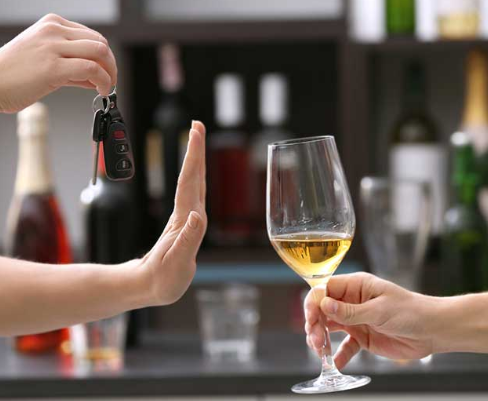 One innovative wonder that has helped immensely with Drunk driving is Uber, the ridesharing application. Established in 2009, Uber has utilized a customized taxi considerably more reasonable and advantageous. Previously, when an inebriated individual would leave the bar, he would have a solid motivator to drive, since he didn't have $30-$40 to pay a taxi to take him home. What's more, since he headed to the bar and left his vehicle in the city, he would need to drive due to the plausibility of getting towed medium-term. Uber tackled those issues. With only a couple of taps on your telephone, you would now be able to arrange a taxi to lift you up inside a couple of minutes, whenever of the day. Remain outside a bustling bar on a Saturday night, and you will see different Uber autos destroy up to drive clients home. It is a pleasant encounter watching the Uber vehicles, realizing that a deadly crash may have recently been forestalled.
One innovative wonder that has helped immensely with Drunk driving is Uber, the ridesharing application. Established in 2009, Uber has utilized a customized taxi considerably more reasonable and advantageous. Previously, when an inebriated individual would leave the bar, he would have a solid motivator to drive, since he didn't have $30-$40 to pay a taxi to take him home. What's more, since he headed to the bar and left his vehicle in the city, he would need to drive due to the plausibility of getting towed medium-term. Uber tackled those issues. With only a couple of taps on your telephone, you would now be able to arrange a taxi to lift you up inside a couple of minutes, whenever of the day. Remain outside a bustling bar on a Saturday night, and you will see different Uber autos destroy up to drive clients home. It is a pleasant encounter watching the Uber vehicles, realizing that a deadly crash may have recently been forestalled. There are likewise applications that can recognize when an individual is too inebriated to even think about driving. One model is Breathometer, a free application that is accessible for Anroid and iOS. The application utilizes an outer gadget that interfaces with the client's earphone jack, and when the client blows into the gadget, their BAC is estimated. The application likewise has different highlights. For instance, it gives the client a chance to call taxi administration, or locate a close by inn to crash. Alcohoot is another comparative application that needs an outer gadget to work. Like Breathometer, the client blows into the gadget and measures their BAC. This one likewise coordinates with Uber and Lyft. Be that as it may, the adequacy of these applications in anticipating alcoholic driving is disputable. There is a contention that in the event that an individual's judgment is too hindered to even consider driving, at that point they are not going to know to utilize the application. In any case, there was an examination that appeared to discredit this idea. It gives the idea that such applications do help partially.
Different firms have additionally been endeavoring to build up a wearable biosensor to distinguish blood liquor levels. Architects at the University of California, San Diego have structured a tattoo-looking biosensor which would distinguish the measure of liquor in the one's blood utilizing their perspiration. The data would then be sent to the individual's cell phone by means of Bluetooth to tell them when they are too inebriated to even think about driving.
All the more as of late, specialists in Israel have planned a virtual breathalyzer to test whether somebody is inebriated, and to what degree, utilizing their wireless. The thought is that when an individual is flushed, their developments will be not quite the same as a typical individual and these developments can be followed and estimated utilizing a cell phone's movement sensors. The scientists guarantee this test is exceptionally exact, and it can recognize an alcoholic individual with an exactness of 93%, as estimated against standard DUI tests utilized by the police.
Since the innovation is excessively new, law requirement still can't seem to address how the utilization of applications will be actualized to avert alcoholic driving. At some point however, vehicles may have the capacity to speak with cell phones to keep an inebriated individual from beginning their vehicle. Up to that point, an alcoholic driver is allowed to drive, regardless of how much their cell phone beseeches them to simply take Uber.


